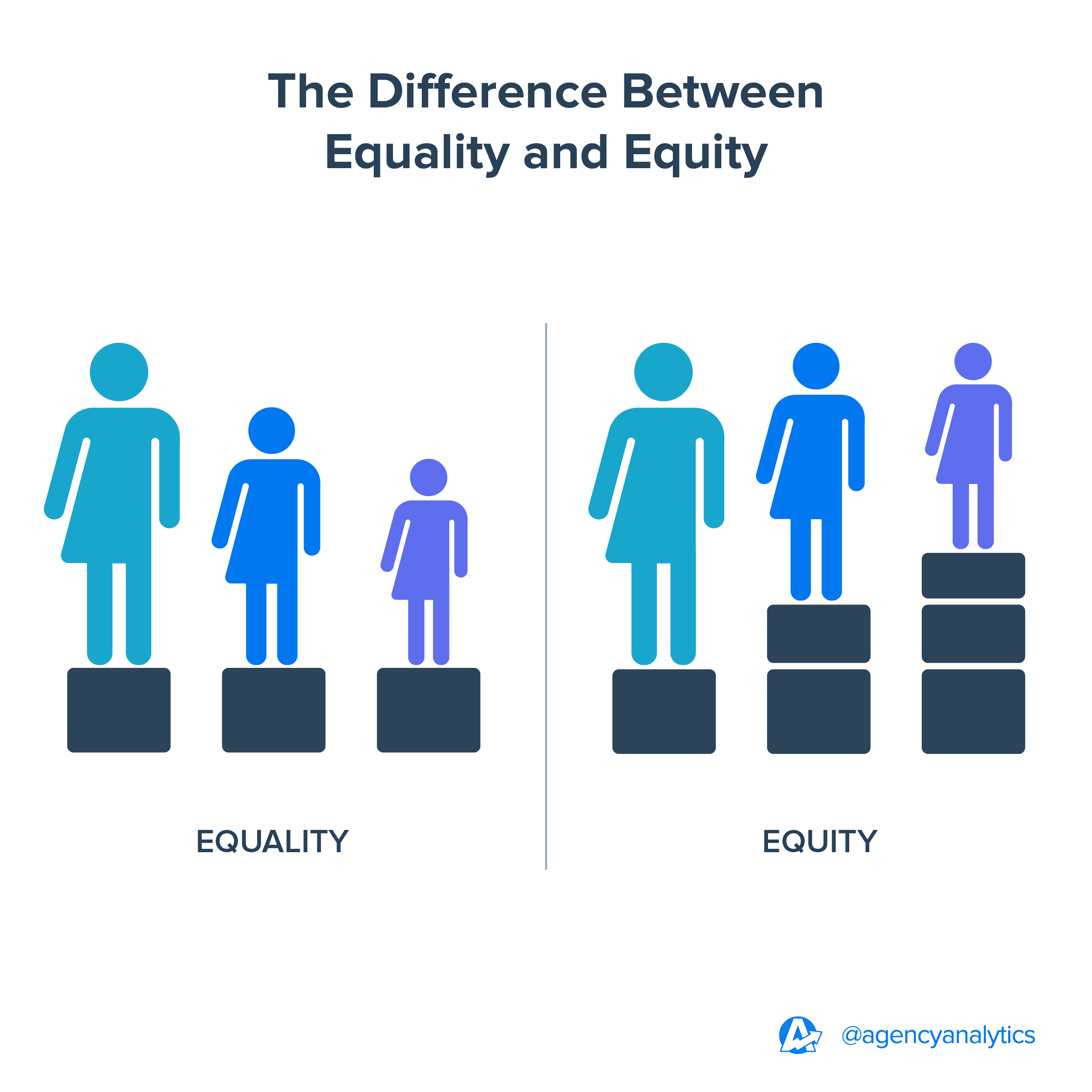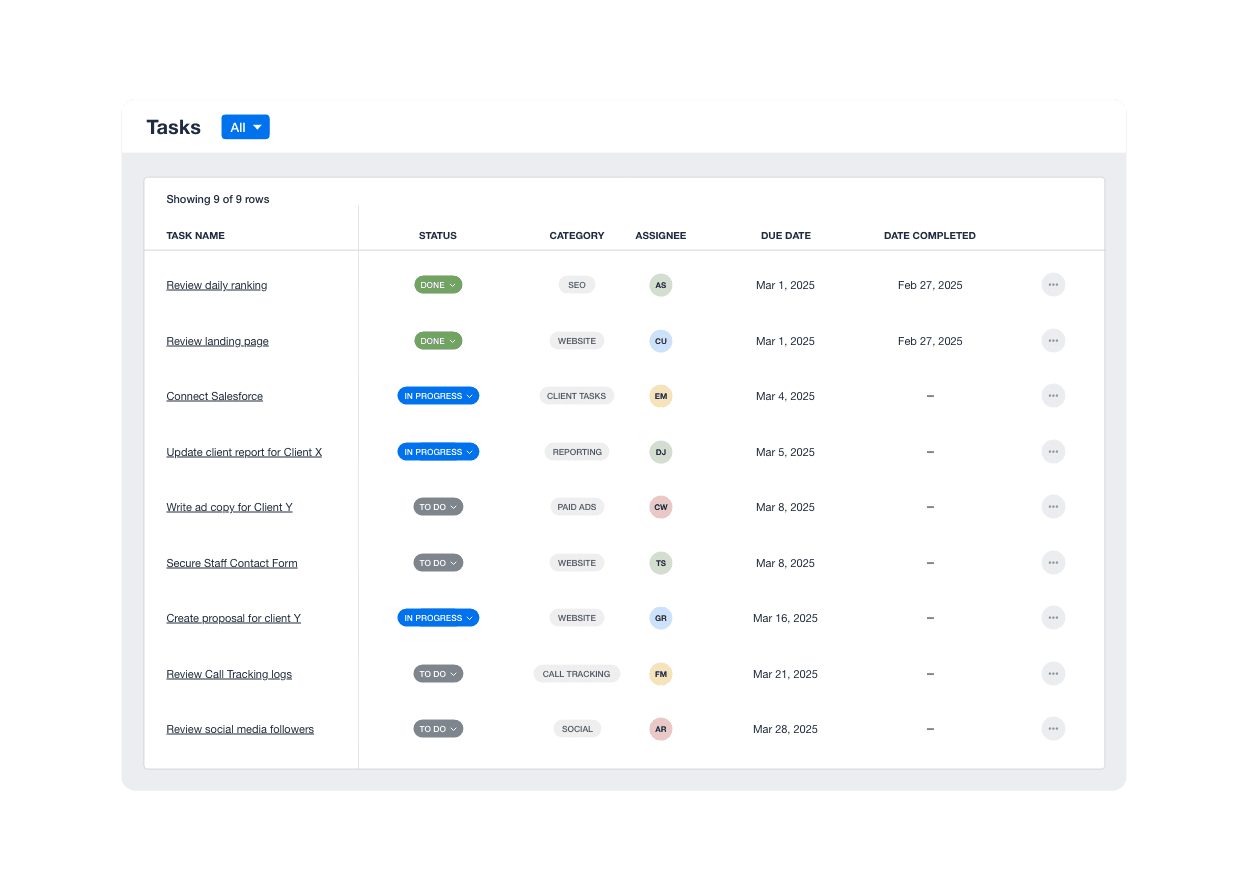Table of Contents
QUICK SUMMARY:
Supporting working moms at your agency ensures an equitable environment that maximizes their valuable skills. This article shares the unique challenges working moms face and provides actionable strategies to create a supportive workplace.
The thought of Mother’s Day may conjure up images of breakfast in bed, mani-pedis, and handmade fingerpaint cards–all excellent options. But for agency leaders, Mother’s Day is also the perfect time to consider whether your marketing agency is doing everything you can to support the moms on your team–on May 12th and beyond.
Today, we’re taking a look at some of the distinct challenges faced by mothers in the workplace, and providing you with an actionable list of steps to take to make sure your agency is an equitable environment that sets employees at every stage of their motherhood journey up for success.
We’ll also be sharing some of the unique and invaluable assets that moms bring to the table–as team members and as agency leaders themselves.
The “Motherhood Penalty” vs. the “Fatherhood Bonus”
Let’s begin by addressing the elephant in the room.
According to a national longitudinal study,
“On average, men’s earnings increased more than 6 percent when they had children (if they lived with them), while women’s decreased 4 percent for each child they had. Childless, unmarried women earn 96 cents for every dollar a man earns, while married mothers earn 76 cents, widening the gap.”
It’s become known as the “Motherhood Penalty” and the “Fatherhood Bonus”, and while most employers would like to believe that these unconscious biases aren’t a factor in their hiring decisions, the data tells us a different story.
The gap in wages and promotions between moms and dads persists even when we control for factors such as “experience, education, hours worked, and spousal incomes”.
In summary: When you’re comparing two identical workers, the one who is a mother fares worse than her male colleague.
Case in point, researchers at Cornell conducted a study in which employers were sent identical resumes, some which included a single line mentioning membership to a parent-teacher association. Infuriatingly, the female candidates were half as likely to be called back than their male counterparts.
Think about the loss for the workforce: two identical candidates, but only half are getting up to bat.
One of the biggest challenges that I've faced as a female business owner is that people expect me to be at home. They expect my husband to be the breadwinner. I'm often finding myself needing to balance being the primary one that teachers want to contact about issues at school, being the one that people expect to be at a doctor's appointment and all of that, with also being the primary support for all of the employees that I have.
The truth is, as a mother, I want to be the one that's intimately involved in everything that my children do. But I also need to do a good job at work. So finding that balance and then feeling like I have to justify anything that I do have to miss at home is really difficult.
I don't think that's something that male business owners have to do. People kind of expect that the woman is the one taking off to care for a sick kid. Whereas as the female business owner, if I ask my husband to take time off to care for a sick kid, I do usually feel the need to justify it or somebody might make a comment about it. It's definitely a struggle.
Jessica Tappana, Owner, Simplified SEO Consulting
The Mental Load…and the Silver Lining for Agencies
The “Motherhood Penalty” is just the first bullet. From there, the data suggests that even once moms overcome the barriers to getting hired, their overall workload is generally more demanding.
Women still perform 50% more unpaid housework than their male counterparts. And, due to a phenomenon known as the “mental load” they also carry the burden of most of the invisible labor.
A study in the American Sociological Review defines the mental load as the work of "anticipating needs, identifying options for filling them, making decisions, and monitoring progress."
For example, the “mental load” is not the act itself of driving the kids to school, it’s coordinating the carpool, anticipating the traffic disruptions, knowing the best place to park to skip the “kiss and ride” lineup, and a host of other things that either make the morning drop off a breeze, or a disaster.
This invisible labor often goes unacknowledged, but that doesn’t make it any less real, important, or skillful. If the family unit were a business, Mom would be the project manager, keeping everything running smoothly and on time.
Now, here’s where we find the silver lining.
The skills necessary to successfully navigate the mental load–negotiation, time management, critical thinking, coordination, delegation, relationship building, and strategic planning– are all highly sought-after skills in the workforce.
If you’re an agency leader who also happens to be a mom, chances are you use these skills every single day to scale your business.
When that 9 am meeting with your most difficult client is looming and it’s time for you to roll up your sleeves and negotiate the budget of their next big campaign, you’ve likely already warmed up that day by:
Waking up at the crack of dawn to land a spot for each child in parks and recreation swim lessons.
Wrestling a fussy toddler into that coat they don’t want to wear.
Ensuring that the science fair project doesn’t get crushed or wet in the rain while transported from car to class.
Briefly chatting with the teacher about adjustments to an IEP.
That snide comment from the client isn’t anything you can’t handle. You’ve already run a marathon–and your day is just getting started.
A parody of the original BBC segment in which a father was interrupted during his live interview.
While there’s obviously work to be done to even the playing field, agencies shouldn’t scoff at the hard-won skills and experience that working moms earn through momming, in addition to the valuable skills and professional work experience they bring to the table.
Women are born with what I believe to be a higher level of emotional intelligence, empathy, and compassion. It's like a mothering instinct baked right into us. In my agency, I bring all of that into how I care for my team and our clients, from hiring to mentoring to retaining our team and to, yes, even firing.
Kim Walker, Co-owner, Shop Marketing Pros
Equality vs. Equity for Mothers at Your Agency
OK, so we’ve established that there are unfair and unfounded biases against working mothers and that there’s an opportunity cost to counting them out. Where do we go from here? How do we reap the benefits of a more even playing field? How does your digital agency leverage this information?
You strive to be an equitable employer.
Briefly, equality and equity are not the same thing. Equality means that resources and opportunities are distributed equally, regardless of skills, abilities or needs. Equity strives to factor in the differences among people–such as gender, race, socioeconomic status, and other factors.

The working mothers your agency hires and retains have as much innate ability to add value to your agency as anyone else; but they might need different kinds of support in the workplace in order to achieve the levels of success they’re capable of.
It’s also worth noting that motherhood takes many different forms, and requires different supports at different legs in the journey.
Undergoing IVF treatment
During pregnancy
The adoption or surrogacy process
Parental leave
Returning to the office postpartum
And every phase of growth from baby to child to teenager to adult
At your agency, mom employees may fall into many of these categories at any given time. Each has its own challenges, and it’s worth employing some empathy to ensure that your team members feel supported and seen.
Let’s take a closer look at how to do just that.
6 Ways To Support Working Moms at Your Agency
There are many ways that agencies can support working moms during pregnancy, adoption, and in their postpartum eras; the following list represents just the tip of the iceberg.
By implementing even the most simple and easy equity measures, marketing agencies will reap the benefits of hiring and retaining the powerhouse demographic that is working mothers.
Impress clients and save hours with custom, automated reporting.
Join 7,000+ agencies that create reports in under 30 minutes per client using AgencyAnalytics. Get started for free. No credit card required.
Already have an account?
Log in
1. Focus On an Equitable Hiring Process for All
As your agency works to build a winning team, start by updating your anti-discrimination policies and practices. Like it or not, conscious and unconscious biases could still be affecting your recruitment and hiring efforts.
This can happen anywhere in the process from the resume screening through to initial assessments and interviews. Consider implementing a blind hiring process; research indicates women are much more likely to be hired when hiring staff do not know the applicant’s gender.
Agency Tip: Unfortunately, there could be bias baked into your recruiting software. When AI platforms are fed discriminatory data, they produce biased results. Do your research and keep a watchful eye to ensure that the very tools you’ve chosen to help eliminate discrimination aren’t in fact doing the opposite.
2. Create Flexible Policies
Mothers may have different schedules than their child-free peers. This only makes them appear less valuable if you are measuring productivity by who’s physically seated at their desk the longest.
Consider providing flexible hours to accommodate prenatal visits, or school or daycare pick up, flexible hybrid or remote work options, and additional sick days to account for sick children. You may want to note the Professional Development (PD) days and holidays of your local school board in your team calendar, because chances are, many working parents will need accommodations for those days.
While this may seem “steep” to some, your motivated, committed, career-oriented working moms will still perform at a top level. Plus, perks like remote work or four-day work weeks provide more differentiators between you and your competitors–meaning you’ll have your pick of applicants.
Agency Tip: You want to track metrics that matter. “Hours at your desk” is not a useful metric. Strive to evaluate the quality and quantity of your employees’ work, whether it’s by implementing a points/capacity system like in the Agile methodology or tracking the successes and failures of deals closed, billable hours, leads generated, conversion rate, etc.

Keep the whole team on track with simplified task management. Try AgencyAnalytics free for 14 days.
3. Take Inclusivity Seriously at Every Level
Studies show that inclusive, diverse companies are 120% more likely to meet financial goals. It should be a top concern at your agency to maintain a zero-tolerance policy on discrimination based on race, religion, sexual orientation, gender identity or neurodiversity–and on parenthood.
A hostile workplace sours productivity and inevitably causes top talent to leave for a less toxic work environment. Lead by example at your agency and ensure everyone in a position of authority is doing the same. Ensure that there are means in place for employees to safely report discriminatory behavior and that HR has processes to handle such situations.
Try as you might, in the years you own or operate your agency, you probably can’t prevent 100% of all bullying, off-color remarks, or abusive behavior. But you can make sure your agency is a safe place to come forward, and that once you’re aware of such behavior, it’s tamped out immediately–no matter whether the perpetrator is your 10-year CFO or your brand new intern.
Women connecting with other female leaders and other women in industries, whether they are the same or diverse industries, help each other to grow because we understand that we are not just female leaders, that we are leaders who are women, who are mothers, who are all these different titles that we associate with one another or for ourselves, all these different layers of our identity. And I think that that is a key piece of what makes us unique and how we work together better to help the next generation of women understand who they are, independent of the titles placed on us by society.
Victoria "Vix" Reitano, Fractional CMO, Agency 6B
4. Offer Best-in-Class Parental Leave
American companies can look to their peers in Scandinavia, Canada, Europe and Australia for the overwhelming evidence that parental leave literally saves lives, reduces rehospitalization, and improves outcomes for parents and children.
While you might worry about staying competitive in the U.S. market while offering European-style maternity leave, take a breather. A good first step is to start by making sure your employees are covered under the Family Medical Leave Act (FMLA).
Next, sit down with your leadership team to discuss how your agency might build from that ultra basic 12-week maternity leave. There are many different options available to you, from adding a few extra partially paid weeks off, to allowing more unpaid time off with job security, to allowing employees to re-enter their jobs on a gradual, part-time basis or with flexible hours.
It’s also crucial that you encourage employees of all genders to take their full parental leave too. Men are also accountable to contribute to the domestic labor; it shouldn’t all be on Mom’s shoulders.
5. Provide Dedicated Spaces for Working Mothers To Do What They Need To Do
Motherhood is nothing if not messy. Working moms soldier on through a litany of gross, uncomfortable, painful, and embarrassing physical symptoms and they need privacy to take care of business.
Whether it’s hormone injections for IVF or pumping breast milk, either allow the employee to work remotely from the comfort and safety of her own home (where her pads, pumps, and medications are all easily accessible) or be certain there’s a lockable private, sanitary space made available for all moms.
6. Be Mindful That Motherhood Looks Different for Everyone
As you incorporate equitable support for working mothers into your agency, keep in mind that the motherhood journey is not the same for everyone.
You don’t want to forget about those who adopt, use a surrogate, or foster on their journey to motherhood. You’ll also want to provide equitable support for moms of children with exceptional needs–those with learning disabilities, physical impairments, or long-term illnesses. These employees might need different support from you and your team to avoid burnout–but they should be acknowledged and celebrated like any other employee at your agency.
Help Your Agency Stand Out Among Competitors
This hasn’t been your average Mother’s Day article–we know. But hopefully it’s given you some food for thought.
Creating adequate support for mom employees will not only ensure that your agency benefits from the maximum capacity of their incredible talent, but will also help you differentiate your brand from competitors. Prioritizing the systems necessary for an equitable agency environment will make both future job seekers and potential clients stand up and take notice.
In this highly competitive labor market, capitalize on this opportunity to refine your hiring and retention efforts and focus on supporting mothers and families. You’ll build brand awareness as a family-friendly employer that brings all the top talent knocking on your door, and you’ll have all-star employees that you may have otherwise overlooked, while your competitors are missing out.

Written by
Elyse Gagné develops branding and content strategies that unite businesses with their customers. A podcast junkie, you'll find her learning about the latest technologies and brand storytelling techniques while she gardens or hikes.
Read more posts by Elyse GagnéSee how 7,000+ marketing agencies help clients win
Free 14-day trial. No credit card required.






